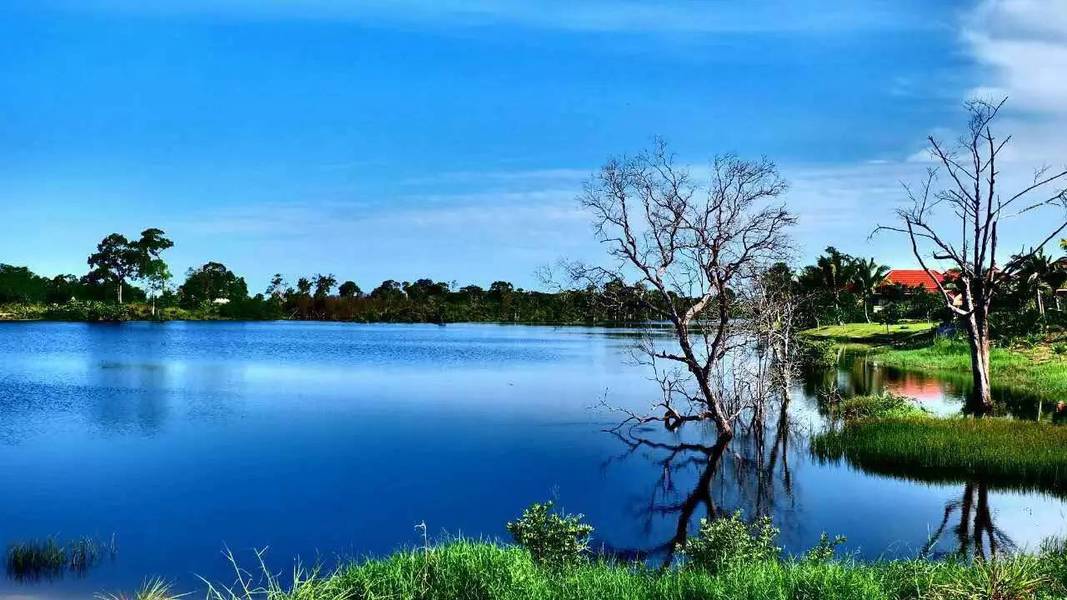To commemorate the 70th anniversary of the end of World War II
Johnson Choi-1008 01/25 84195.0/1
Will Hawaii Chinese Community Afraid to take part in this celebration? Chinese throughout North America whether they are affiliated with The People Republic of China or The Republic of China are making plans to celebrate the 70th anniversary of end of World War II when many World War II Verterans are in their 80s and 90s including victims and families of the Nanjing Massacre when more than 300,000 were slaughtered by the Japanese invading force in 1937.
Monterey Park California commemorates 70th anniversary of end of World War II
A World War II veteran places a rose at the American & Chinese World War II Memorial Monument as the city of Monterey Park commemorates the joint efforts of American and Chinese Allied Forces during WWII in front of City Hall on Thursday January 15, 2015. Congresswoman Judy Chu places a rose at the American & Chinese World War II Memorial Monument (Photo by Keith Durflinger/Pasadena Star News) By Zen Vuong, Pasadena Star-News POSTED: 01/15/15, 6:04 PM PST
In December 1937, the Japanese army invaded Nanjing and raped, tortured and murdered more than 300,000 Chinese civilians, a number exceeding the death toll in the atomic bomb deaths of both Hiroshima and Nagasaki.
It is fitting that the celebration of Chinese-American efforts of the day took place in Monterey Park, Chu said, noting it was the first U.S. city to become majority Chinese and the first municipality to have a largely Chinese City Council.
Victory over Japan Day (also known as Victory in the Pacific Day, V-J Day, or V-P Day) is a name chosen for the day on which Japan surrendered, in effect ending World War II, and subsequent anniversaries of that event. The term has been applied to both of the days on which the initial announcement of Japan’s surrender was made – to the afternoon of August 15, 1945, in Japan, and, because of time zone differences, to August 14, 1945 (when it was announced in the United States and the rest of the Americas and Eastern Pacific Islands) – as well as to September 2, 1945, when the signing of the surrender document occurred, officially ending World War II.

To commemorate the 70th anniversary of the end of World War II, Monterey Park officials and delegates from the People’s Republic of China paid their respects Thursday to the 20 million Chinese and 418,500 Americans who lost their lives in the devastating conflict.
Former Mayor Betty Tom Chu said Chinese and American cooperation resulted in the famed Flying Tigers — pilots who shot down 296 enemy aircraft, weakening the Japanese and speeding the end of a horrendous moment in history. Kunming province became a home base for these U.S. sharpshooters, who risked their lives to keep the locals safe.
“If the Chinese had not risen in defiance of the foreign invasion, something much more disastrous could have happened to world peace,” she said. “On behalf of the American and Chinese World War II Memorial Association, I’d like to remind people that the Chinese did participate in the World War II. And not only did they participate, but their activities in fighting the aggression helped end the war.”
Among those in attendance in council chambers and in front of the United States’ only American and Chinese World War II memorial — dedicated in November 2010 — were Monterey Park city leaders; delegates from Nanjing, the capital of China during WWII; officials from Kunming, which hosted 325 of the heroic Flying Tigers; and 13 WWII veterans, all there to honor the lives lost and express their hope for prolonged world peace.
Leland Sun, great-grandson of Sun Yat-sen, founding leader of the Chinese Nationalist Party, was on hand, having donated a set of 1942 stamps featuring Sun Yat-sen and Abraham Lincoln. These were the first U.S. stamps that included a Chinese person, said WWII historian Pedro Chan.
City Councilwoman Teresa Real Sebastian expressed her gratitude to the WWII veterans — and her desire for peace.
“The things that are transpiring in other countries right now, sometimes I’m on edge thinking, ‘I hope things calm down,’ ” she said. “It’s important that we keep talking about this and not just focus on the positive aspects of humanity but also look at these things so that we could remember and we could learn. And we could preserve what is good and makes all of us human.”
In December 1937, the Japanese army invaded Nanjing and raped, tortured and murdered more than 300,000 Chinese civilians, a number exceeding the death toll in the atomic bomb deaths of both Hiroshima and Nagasaki.
It is fitting that the celebration of Chinese-American efforts of the day took place in Monterey Park, Chu said, noting it was the first U.S. city to become majority Chinese and the first municipality to have a largely Chinese City Council.
WWII veteran Ray Molina, 87, is one of six brothers who enlisted to serve his country. While they all survived the conflict, Molina is the only one who still survives.
“It was heartbreaking,” he said, after performing the traditional Chinese three bows at the memorial and placing a celebratory red rose beside it.
The import of the ritual was close to home for the veterans. Angelo Guerrero, 89, rose from his wheelchair during the ceremony, while Bill Sanchez, 96, asked for help when he couldn’t bend far enough to ensure his flower stood at attention.
WWII and Korean War veteran Richard Dominguez, 90, said he is glad the Chinese received the recognition they deserve. He recalled learning about the Rape of Nanking as a high school student and always admired the work of the Flying Tigers.
“They helped us during the war, and we’re certainly grateful for that,” he said.

http://www.pasadenastarnews.com/government-and-politics/20150115/monterey-park-commemorates-70th-anniversary-of-end-of-world-war-ii



